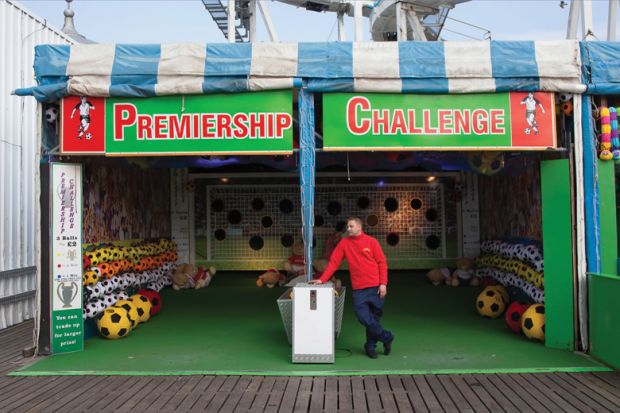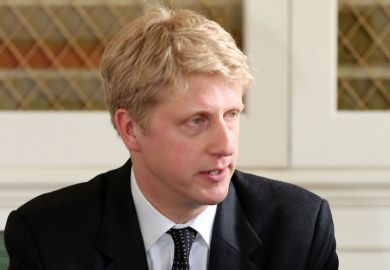Universities must broaden their outreach activities beyond sport if they are to encourage more white working-class boys to enter higher education, a study suggests.
Research by the National Education Opportunities Network found that few institutions ran access programmes focusing on white males from disadvantaged backgrounds and that those that did often used sport to engage their target cohort. Several worked in partnership with professional football or rugby clubs, for example.
Neon’s report says that although this is a valid approach, it cannot be the only tactic, highlighting research that found that nearly a quarter of boys aged between 11 and 15 did not take part in any sport outside school lessons, and another quarter participated in three hours or less each week.
Graeme Atherton, the director of Neon and a co-author of the report, said that other popular activities such as computing, film and reading should be a focus too.
“Sport is often hugely important in the life and cultural identity of this target group, but there are many young people in this group who aren’t interested in sport,” he said. “There have to be other ways to engage this group as well.”
The study comes amid growing concern about the participation of white boys at degree level, with a report for the Higher Education Policy Institute finding earlier this month that girls born this year will be 75 per cent more likely to enter university than their male peers if current trends continue.
The Neon survey of 25 English universities and access charities found that there was a need for more research to understand the particular requirements of white boys from disadvantaged backgrounds, and for a better understanding of whether these were best met through targeted initiatives or those aimed at other underrepresented groups as well.
Dr Atherton said that universities should ensure that their student ambassador teams are gender-balanced, rather than predominantly female; and that their engagement with white boys should focus more closely on improving attainment.
“[These children] need to do better in core subjects in school if they are going to progress,” said Dr Atherton. “That means universities working with schools to support their progress in core subjects.”
Register to continue
Why register?
- Registration is free and only takes a moment
- Once registered, you can read 3 articles a month
- Sign up for our newsletter
Subscribe
Or subscribe for unlimited access to:
- Unlimited access to news, views, insights & reviews
- Digital editions
- Digital access to THE’s university and college rankings analysis
Already registered or a current subscriber?







